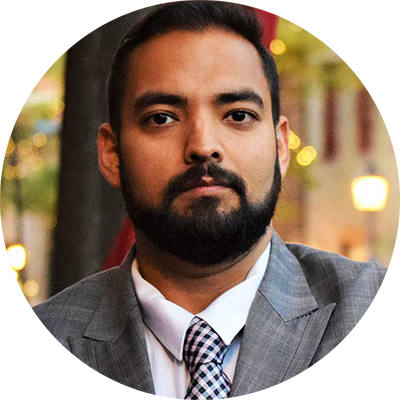One of the most overlooked and underrated strategies for self-protection is obtaining a copyright and having it registered with the U.S. Copyright Office.
If you have authored any work that is original, whether it be in poetry, architecture, computer programming, blogging or anything else that is your own creation, it is important to understand that once it is in tangible form, it is automatically copyrighted and can be registered with the U.S. Copyright Office in Washington, D.C. The process of copyright registration in the U.S. involves filling out an application form with the U.S. Copyright Office, including a nonrefundable filing fee (currently $35), and then submitting three copies of your work along with two copies of your application form per work submitted for copyright application.
Why Should You Register Your Copyright?
Having your work registered with the U.S. Copyright Office affords you certain protections under the law if you believe someone is infringing on your rights by reproducing or distributing or selling your copyrighted material without permission or compensation to you as the creator of that intellectual property (IP). Registering a copyright gives you several advantages: It gives you proof under law that you are indeed the creator of that work; and in certain cases it allows you to claim statutory damages and attorney’s fees.
Somewhere along the way, you might have developed a fear of being sued for plagiarism. If you don’t have anything to hide, though, there’s no reason to fear a lawsuit. In fact, copyright law is one of the most powerful legal weapons in your arsenal. So long as you’re following the law, it gives you a broad set of exclusive rights over your authored work:
- Reproduction of the work,
- Derivatives based upon the original work,
- Distribution of copies of the work to the public,
- Perform the work publicly if it is a literary, musical, dramatic, or choreographic work; a pantomime; or a motion picture or other audiovisual work,
- Public display of the work (This right applies to a wide variety of works covered under the US Copyright Law),
- Public performance of a work that is a sound recording through digital audio transmission.
The truth is that copyright law doesn’t protect the idea behind your work — it protects only the specific expression of that idea in a tangible form. So if someone copies your original expression, they have violated your rights as a copyright owner and you have legal recourse. But if they take an entirely new approach to a similar idea and create something new and original, then they are safe. Copyright is not just for the big guys. It is a legal protection grounded in the U.S. Constitution that allows all creators to protect their work’s integrity and revenue sources, big or small.
How does copyright law help you protect your business?
Copyright registration is one of the most underrated strategies for self protection against bad faith actors who exploit any of the afforded rights listed above as a copyright owner. Filing a claim with the U.S. Copyright Office takes a few minutes and costs less than $35 per work. The benefit to filing a copyright claim with the U.S. Copyright Office is that if someone steals your work and profits from it you can sue them for up to $150,000 per infringed work and collect special damages (statutory damages) of up to $30,000 per infringement (in addition to actual damages). The infringer’s profits are also yours to keep!
This is important to entrepreneurs and business owners of all kinds, from artists to computer programmers to authors. Registering your copyright is a simple, practical way to protect your personal property rights through official channels. It can be an asset in surviving a number of legal situations that can arise in your daily business life, making it a great investment at just the cost of registration itself. If you’re doing a lot of work for clients (and most freelancers are), you may want to think about copyright registration. Copyright law is complicated and subject to change, but it’s essentially this: if your work is fixed in a tangible medium (like a hard drive or a sheet of paper), it’s automatically copyrighted from the moment you create it. You don’t have to register it, and the fact that you didn’t register it doesn’t mean that you don’t have copyright protection. But registration provides an extra layer of protection that allows you to collect special damages from an infringer.
Concerned about your intellectual property? Well even 10 years ago copyright lawyers were not a necessity for individual business owners, but the last decade or so has seen a great deal of new legislation, and an enormous increase in the number of people looking to share their work freely. So what does this mean for you as an innovator? You don’t need to be a major corporation to need help with claiming your copyright. In fact, taking advantage of this form of protection is well within reach for anybody that takes its intellectual property seriously. Copyright registration can be one of the most effective strategies you have at your disposal when it comes to protecting yourself against theft, loss, or invasion of privacy. In fact, it’s one area where you can get help without running up massive legal fees. An important investment in preserving the rights over any material you produce is critical. Let Drishti Law evaluate your portfolio and deliver a strategy that adequately protects your rights as a copyright owner or licensee.

Sahil Malhotra
Sahil Malhotra is an Intellectual Property Attorney, who founded Drishti (“vision”) law because of his vision in protecting dreams and ideas.
He provided individuals and small businesses with an opportunity to enhance their IP’s value by helping them register trademarks and successfully argue against office actions. In addition to his training and experience, he has been deeply involved in the multifaceted IP portfolio at UIC and continues to be associated with IP organizations and conferences.
To know more about Sahil Malhotra — Click Here
You may follow Sahil Malhotra on Facebook: Sahil Malhotra and on Instagram: @Sahil Malhotra

